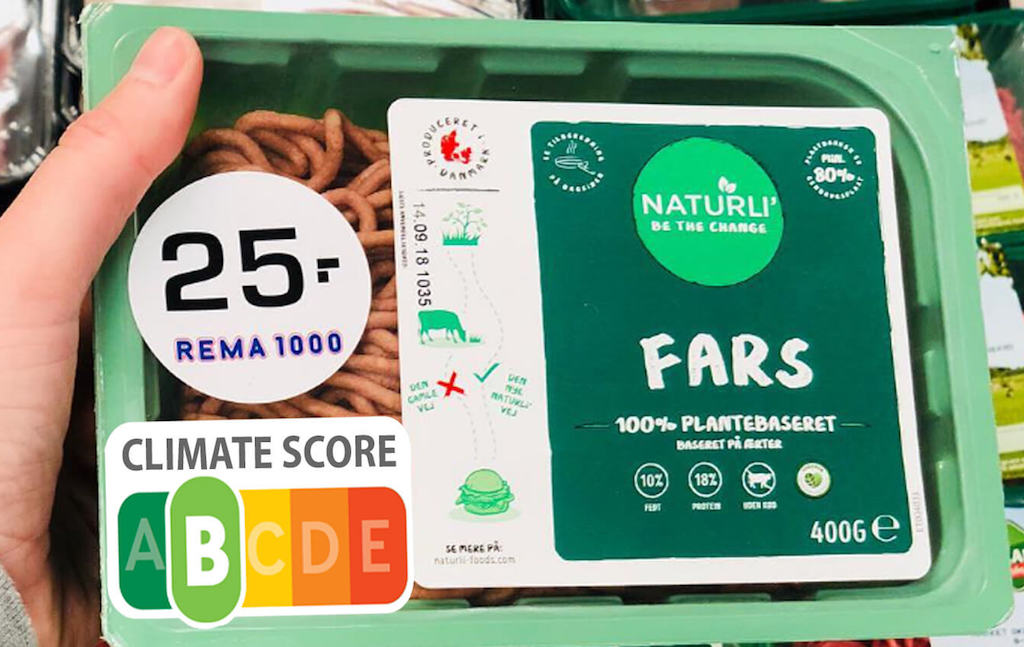3 Mins Read
In a 2018 study, researchers found that a front-of-pack carbon emissions label can drive more eco-friendly food choices amongst consumers. According to the scientists involved in the study, one of the most crucial challenges to combat the environmental footprint of our food system – which contributes to global ecological issues from biodiversity loss to climate change – is the lack of information available for consumers to estimate the impact of different types of food. By providing this data to shoppers, individuals are empowered to choose foods with a lower carbon footprint, which is more important than ever if we are to encourage a change away from our currently unsustainable global food system.
A study published in the journal Nature Climate Change last year reveals that most consumers significantly underestimate the carbon impact of their food, and would be aided to make more planet-friendly choices with a prominent carbon emissions label. The analysis involved over 1,000 participants, and found that most individuals were unable to guess the energy consumption or greenhouse gas emissions associated with the production or transport of different foods. More specifically, participants understated the footprint of red meat by the widest margin.
“Consumers encounter food every day. However, the complex production and distribution process is hidden. For example, many consumers will be unaware that cattle release methane, a greenhouse gas that is 28 – 36 times more potent than CO2,” outlined the paper.
READ: 5 Ways To Reduce Your Carbon Footprint Today
As a remedy, the researchers from Australia and the United States argue that an easy-to-understand, front-of-pack label that explains the carbon footprint label in relation to a familiar reference unit, such as light-bulb minutes can make a difference. The label would also include a comparison of the product with other food products’ impact on the environment, so consumers will be motivated to choose the more planet-friendly option during their grocery shopping.
Compared to a control group, the participants who were given the information label showed an “improved understanding of relative greenhouse gas emissions between alternatives, which in turn shifted choice towards lower greenhouse gas emitting options.”
These findings indicate that one of the solutions to our global food system crisis, which is currently contributing between 19 – 29% of the world’s greenhouse gas emissions, driving biodiversity loss and leading to huge amounts of resource wastage, is as simple as implementing carbon emission labels on foods. This solution to tackle our climate crisis and ecological degradation is already in discussion in Denmark, where authorities are currently looking at proposals to require food manufacturers and grocery chains to start providing labels on products with climate impact information.
Another recent study, conducted by Cambridge University researchers, found that an easy to implement way to decrease our food system’s impact on our planet: simply increasing veggie options on menus helps to reduces carbon heavy meat orders from 40-80%.
READ: Harvard Study Says Plant-Based Diet Provides Complete Nutrition
Choosing more sustainable foods would further benefit our health. A just released analysis from Oxford University revealed that the majority of foods that are correlated to health indices – plants, legumes and fruits – leave less environmental damage than heart-unhealthy animal products.
Lead image courtesy of LiveKindly.




